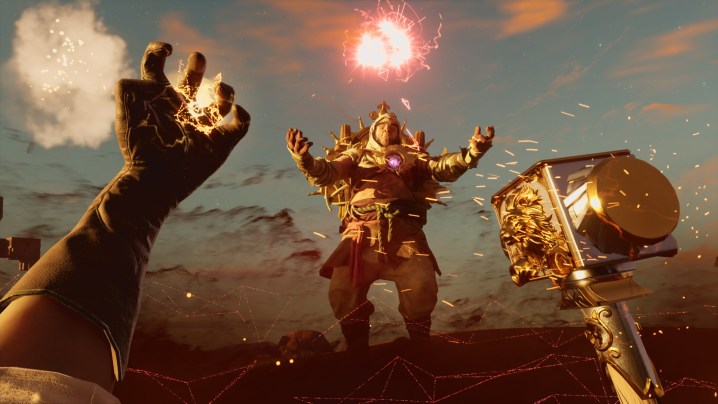
AMD’s platform-agnostic FSR 3 is a great feature, but months after releasing, it’s only available in a small list of titles. Now, we might finally have a clue as to why.
Developers of the upcoming open world survival game Nightingale posted a development update stating that it was removing FSR 3 due to crashes. “After reviewing crash data from the Server Stress Test, a significant number of them seemed to point to FSR3 integrations, whether or not users had the setting turned on,” a prelaunch update post reads.
The developer says it’s looking at ways to implement FSR 3 in the future, but it won’t be available in the launch build. The game is set to launch on February 20, a day after this news broke. The update suggests players use XeSS or DLSS as an alternative for now as they wait for the developer to “see if we can implement [FSR 3], or an older FSR version, in future updates.”
FSR 3 adoption hasn’t picked up nearly as much momentum as we expected. Since the feature released in September of last year, it’s only shown up in 13 games. Nvidia’s DLSS 3 made its way into 25 games in the same time frame. Many titles that have promised support, including Cyberpunk 2077 and Warhammer 40K: Darktide, have yet to receive the feature as well.
Perhaps the biggest fumble for FSR 3, though, was Starfield. AMD signed on as the “PC exclusive partner” for the game, but despite that, FSR 3 only made its way into Starfield about a week ago. On top of that, developer Bethesda added support for Nvidia’s rival DLSS 3 before FSR 3 was added to the game.
The update for Nightingale provides some interesting insight into the slowed FSR 3 adoption. The developer says crash data points to FSR 3, regardless of if it’s turned on or not, suggesting there may be issues getting the feature running. The online component of Nightingale may be playing a role, too — of the list of FSR 3 games, the majority are offline, single-player titles, with the exception of Mortal Online 2 and Call of Duty Modern Warfare 3.
This wouldn’t be the first time AMD has run into issues with online titles. Last year, AMD’s Anti-Lag+ was flagged by anti-cheat software in Counter-Strike 2, leading some users to receive a ban in the game for turning on the feature.




